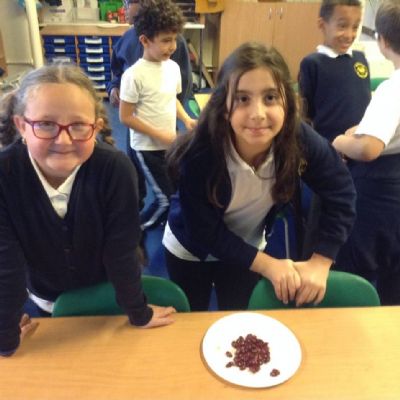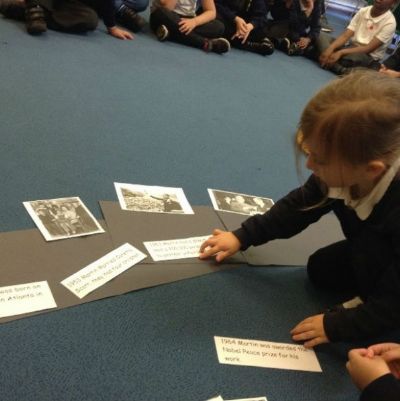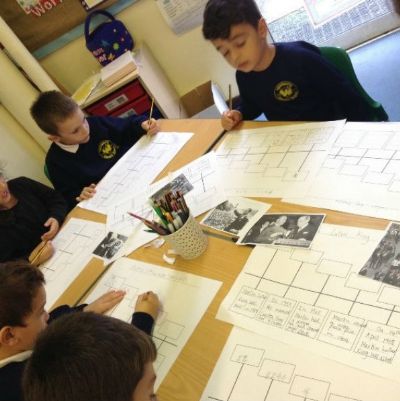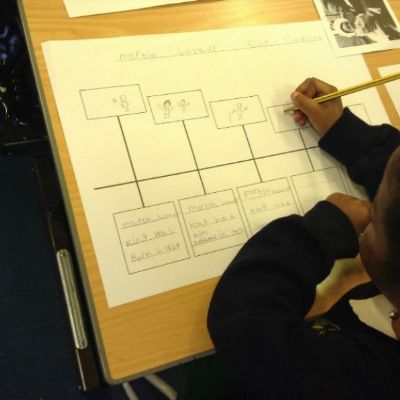History
At Wilbury, we want to encourage our children to develop a coherent and chronological knowledge of Britain’s history and that of the wider world. We want them to be curious about the past and be able to ask questions from their own experience as well as their growing historical knowledge.
We follow the National Curriculum for the teaching of history, and children learn through focusing on the key historical concepts of:
- Understanding chronology
- Interpreting history through sources and artefacts
- Similarity and Difference
- Historical Significance
- Continuity and Change
- Cause and Consequence
These concepts run through all of the history units of work, with a particular focus on chronology and interpretation of sources in each unit. As the children move through the school, from Early Years to Year 6, their understanding of these concepts will deepen as they encounter them repeatedly when studying different people, events and periods in history.
A key cornerstone of history is historical enquiry, and we place this at the heart of our provision. Each lesson is centred around an enquiry question that links to one of the key historical concepts above. These enquiry questions encourage children to think critically, weigh evidence, sift arguments and develop perspective and judgement in each lesson. They are also used to reveal that history is multi-perspective and there is often more than one side to a story.
At Wilbury, we understand that revisiting and making links to past learning is important so that children can increase their knowledge of history and develop a broader understanding of the subject. Therefore, we include a lesson within each unit which looks at the chronology of that topic whilst also looking at the greater historical context surrounding it, making links to previously studied periods and civilisations. We also embed opportunities for pupils to use their prior learning throughout lessons, making reference to topics studied in previous years. We also link history to events which are happening in the news today and encourage our pupils to recognise that history is being made around them and, in turn, inspire them to make history themselves.
We teach to the national curriculum but ensure that our curriculum is relevant to our pupils and reflects the diversity of our school demographic and wider community wherever possible. For example, our Year 4 pupils study the early Islamic civilization of Baghdad c. AD 900 and Year 6 study how protests and migration have shaped British history and our society today. As a school, we have built in studies of significant individuals from the past across diverse cultures: recognising their contribution to national and international achievements as well as studying some significant culturally important events. Our pupils also undertake visits and take part in online webinars to enhance their historical knowledge and widen their experience. We also use relevant books (non-fiction and historical fiction), drama and artefacts to bring the past to life.
Finally, vocabulary enrichment runs through our whole curriculum and history lessons provide an excellent opportunity to develop vocabulary and a historically-grounded understanding of abstract terms that can be used in many other subject areas.
Below you can view curriculum Intent and key learning at each stage (composite knowledge). By selecting a year group, you can view the progression documents.

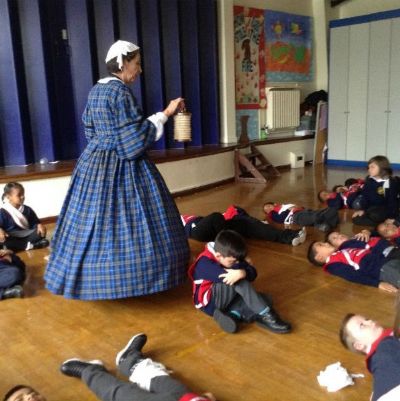
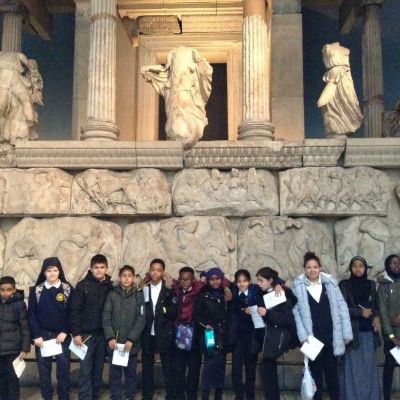
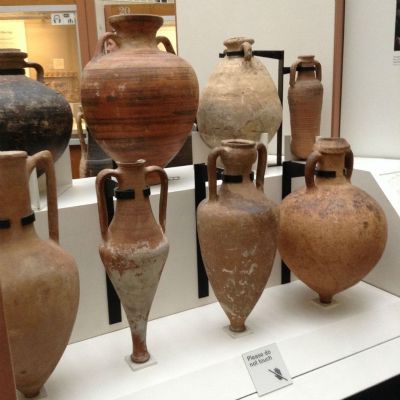
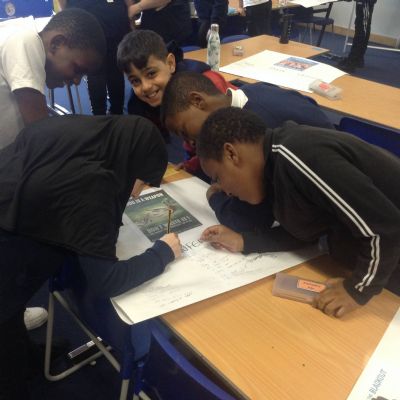
.jpg)
